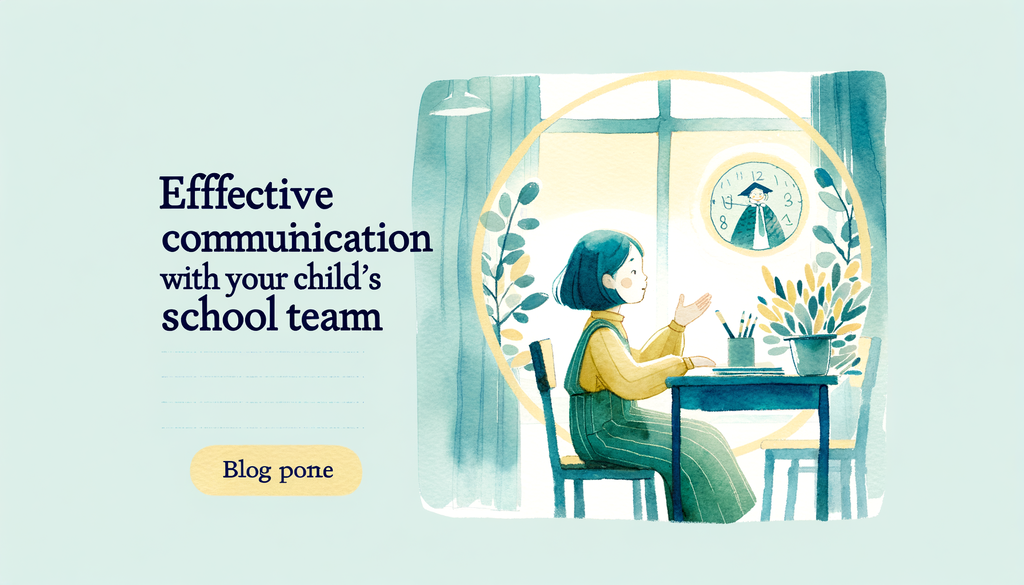Effective Communication with Your Child’s School Team

Parents and caregivers play a vital role in the educational journey of children who have special needs or are identified as gifted and talented. Particularly, maintaining open and productive communication between parents and their child’s school team is key to providing the necessary support these unique children need. This post offers practical guidelines on how parents can keep the lines of communication open, ensuring their children’s specific needs are noted, understood and met.
Knowing your child’s school team and keeping regular contact with them ensures multiple aspects of your child’s education are under constant focus. The composition of your child’s school team might be as simple as a teacher and a school counselor, or it might include specialists such as a speech and language therapist, occupational therapists, and even a school psychologist.
Understanding your child’s legal rights in education empowers you to communicate with your child’s school team confidently and constructively. Several laws protect children with special needs ensuring they receive appropriate and beneficial education (read more here about your child’s legal rights). Similarly, gifted children are entitled to an education that suits their unique needs and capabilities. Always keep the focus of any communication on what is best for your child.
When it comes to bridging the home-school gap, it’s crucial to remember that parents and educators are on the same team. Openness not only means expressing your concerns but also listening to the teacher’s observations about your child. Just as our post on “Fostering Positive Relationships Among Diverse Needs discusses the importance of understanding between siblings, there needs to be empathy and understanding between parents and educators, too.
Remember, a child’s special needs or gifted capabilities do not signify a barrier to their progress but rather a spark that, with the right fuel, can lead to tremendous growth and innovation. With specialized support and teaching, neurodiverse students or those with different abilities can excel in their own unique way. Consider tuning into our previous post on Navigating Neurodiversity to further grasp how inclusivity promotes individual and collective growth.
Communication is a two-way street. Just as you are open and understanding in your dialogue with your child’s school team, educators should be respectful, supportive listeners when parents share their concerns or insights. Unfortunately, this is not always the case. If you’re facing barriers in getting the support you need for your child, it could be beneficial to gather some advice from our post on “Starting a Support Group for Parents”. Social support can be instrumental in these situations.
In the end, it’s essential to remember that every child is different, and there’s no one-size-fits-all approach to education. As a parent, whether your child has special needs or is gifted and talented, your voice matters. Coordinating effectively with your child’s school team suggests a cooperative effort that can make the path forward clearer and manageable for everyone.
Are you interested in more posts on this topic? Feel free to explore “Transition Strategies for Special Needs Kids” and “Financial Planning for Special Education Needs” for more insights and actionable tips. We always strive to remain a helpful resource for all parents and caregivers navigating the fascinating, challenging landscape of special and gifted education.